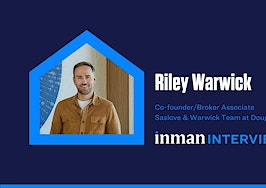- Understand your reputation. It precedes you. It's how others judge you before they know you.
- Character stories are turning points.
- Human connection is the ultimate source of differentiation.
It was Abraham Lincoln who said, “Character is like a tree and reputation like a shadow. The shadow is what we think of it; the tree is the real thing.” This gets at the reputation of the real estate industry.
The reputation is what it is, and it’s not good. It’s the tree. (Just look at NAR’s Danger Report.) But how you’re perceived within the industry is the shadow — open to interpretation based on your differentiation.
If you find yourself being rejected, take that as a clue that you’re stuck in the shadow of the industry’s reputation and have not yet successfully established your own reputation — separate from your real estate agent label.
You need to understand that reputation precedes you. By creating content, you can effectively convey your character before you meet someone. It’s a critical piece in establishing your reputation, and it’s necessary in order to distance yourself from the real estate stereotype.
To be seen as something more than a real estate agent, you’ll have to develop a character story that defines what you do and explains who you are.
What story are you telling?
Former NFL player, Bo Eason, in an article titled “No Story, No Glory,” emphasized the value of storytelling in business, “Story is the connective tissue that binds people to a leader. Story is what makes people latch on to you, want to follow you and want to do business with you. Your authentic, personal story is what makes people fall in love with you.”
The question is, what story are you telling that causes people to fall love with your character? Have you told that story to your audience? The greatest story never told for most business people is their own.
We tend to take our stories for granted. “I’m not interesting.” We undercut ourselves. “Who cares about my story?” But it’s the power of story that has lead nations and moved armies. And that has been used for years to connect with others.
Story is true currency of the human race
Nothing is more powerful than story because it engages people; it brings them into a world (your personal world, if you choose) that you have the power to create.
Eason discusses the power of turning points — the defining moments in everyone’s life — that shape our character. Bo Eason is 53 years old. But being cut from a little league team as a 9-year-old is an event that helped to define him.
He said, “There was so much pain that day I decided, at the age of 9, that that was never going to happen to me ever again. No one was ever going to cut me from any team or anything else ever again. That was more than 40 years ago, and my life is based on that painful moment.”
When he tells this story, it’s meant to convey his work ethic. From the age of 9, he’s been out-working his rivals. Never again will he be cut. He’ll put in the extra time. More blood. More sweat. More tears than anyone else — all because when he was 9 years old, he made a promise to himself. Michael Jordan has a similar story about being cut from his high school basketball team — twice!
Pain is one of those universal things that people can connect with. The journey is what matters. Not the punch line.
In your mind, when you think of any great story, where does it begin? A story about climbing Mount Everest, for example, doesn’t start at the top does it? No! It starts at the bottom. With the question, mentally, physically, spiritually, “Can I climb this mountain? Can I overcome the obstacles that lie ahead? Do I have it in me?”
Eason hammers this point, “Once you start to share yourself, you’ve got this magical thing called human connection … We fall in love with the people who we share emotion with.” He says that sharing your story is a journey the builds intimacy with your audience. Once that is established, “you can take [it] anywhere you want to go because they love you.”
Here’s how real estate agents can use the painful, defining moments in their life to exemplify their unique character and connect with their audience.
1. Identify a turning point
“There’s always a defining moment in our lives that occurred between the ages of 9 and 12. You may have forgotten it.” Usually, it’ll be one of the most embarrassing experiences. Those are the ones you’re after. Eason said, “The more embarrassment you feel, the more connected you are to your audience.”
2. Analyze this event
How did it affect you? Go deep with this. What did it change inside you? After all these years, what was it about this single event that shaped how you view the world today?
Distill that value change or paradigm shift you experienced, and weave it into a story that defines your character.
3. Share your story
Now that you’ve defined a real turning point in your life that showcases your character, find the courage to share it. This is the hard part, but that’s the point.
Eason said the audience isn’t thinking of your pain. They’re thinking of their own pain, and that’s where the connection is made. Once this connection is established, then you can guide the conversation toward business.
And once someone falls in love with your character because of the stories you’ve told successfully — you have established your reputation. With this comes power. And no longer will you be subjected to the negative reputation of the industry or be stereotyped as just a real estate agent.
So tell your story, and start with your turning points.
Ryan Fletcher is the voice of reason at Agent Marketing Syndicate. You can follow him on Facebook or on his podcast on iTunes.













